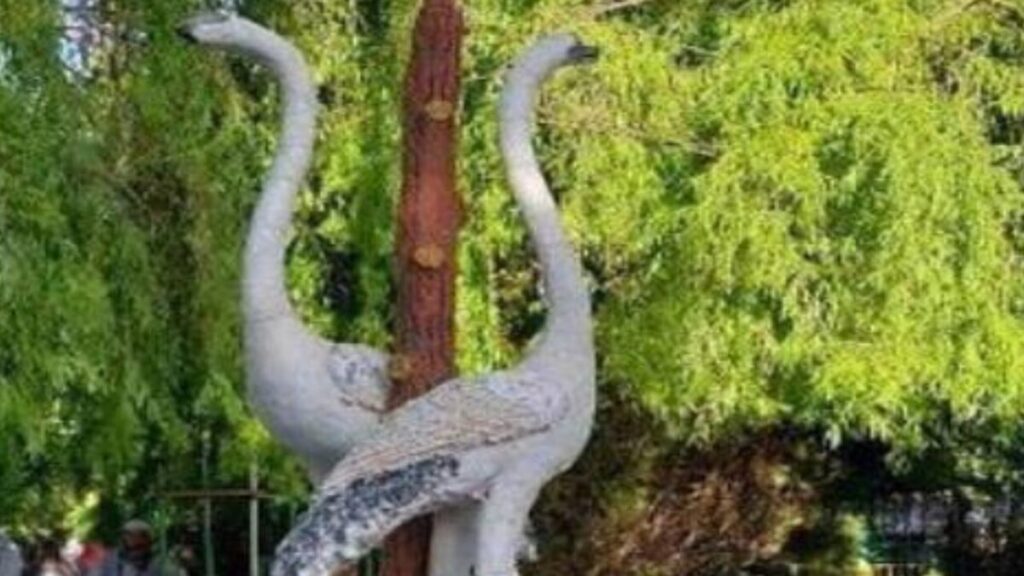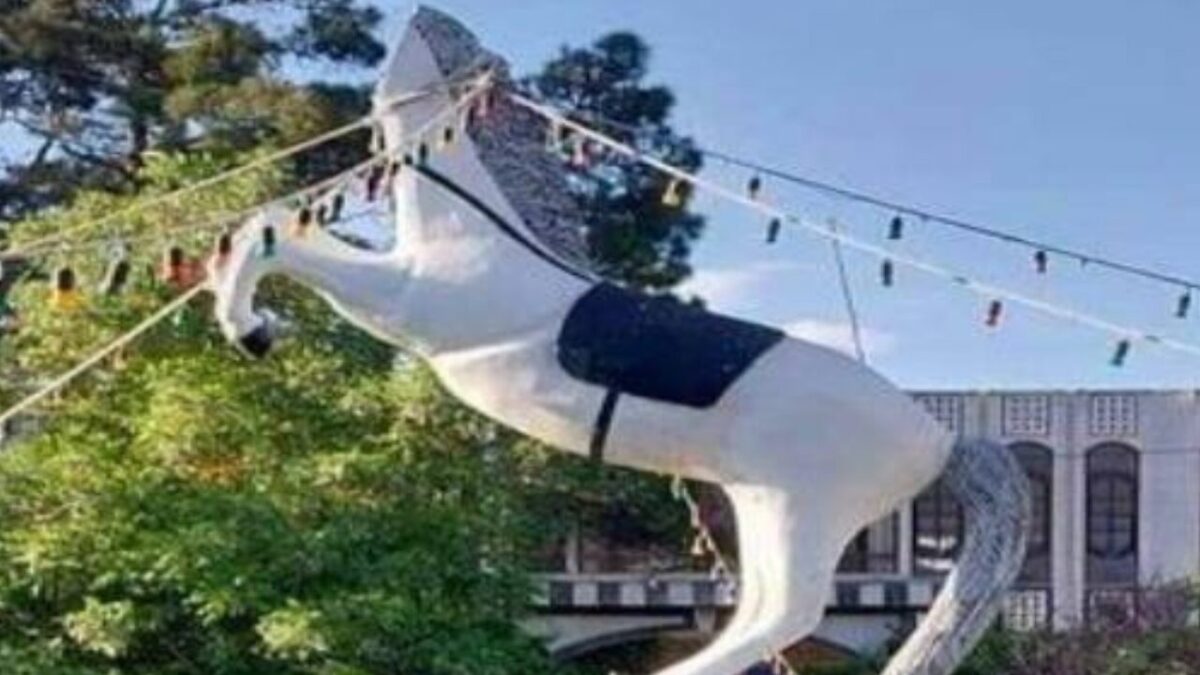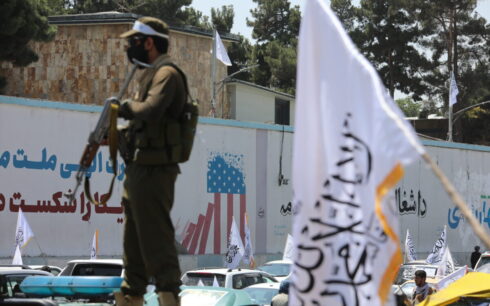Residents of Herat have expressed frustration and outrage over the Taliban’s recent beheading of animal and bird sculptures in the city’s historic Taraqi Park, calling the act a direct attack on the province’s cultural heritage.
The destruction has fueled concerns over the Taliban’s continued imposition of rigid and restrictive measures on Afghan society.
Videos obtained by Amu show Taliban members cutting the heads off sculptures, some of which had been part of the park for years.
Taraqi Park, a popular public space and one of the oldest recreational parks in Herat, once served as a place where men and women could gather together for leisure. However, since taking power in August 2021, the Taliban has progressively restricted public life, including barring women from entering parks under a decree issued by the Ministry for the Propagation of Virtue and the Prevention of Vice.

Cultural heritage under siege
The Taliban’s Vice and Virtue department in Herat recently ordered the beheading of sculptures depicting animals and birds, including a horse and over 10 ducks and other birds, which were installed in the park many years ago.
The action has drawn widespread condemnation from local residents who see it as an erasure of the city’s cultural identity and a further step towards dismantling Afghanistan’s rich historical heritage.
“When a foreigner enters Herat, what message, other than death and terror, will they take back to their country?” said Masoud Moslem, a local resident. “If there’s something you don’t like, just remove it entirely, but don’t play with the culture, the dignity, and the pride of the people of Herat.”
Herat, a city known for its historical and cultural significance, has long been a center of art, architecture, and intellectual life in Afghanistan. Many residents view the Taliban’s actions as not just an attack on a few sculptures, but as part of a broader campaign to undermine the city’s cultural vibrancy and reduce public spaces to a reflection of the Taliban’s strict interpretation of Islamic law.
Backlash from cultural activists
Cultural activists in Herat have voiced alarm over the continued restrictions, warning that the destruction of the sculptures is indicative of the Taliban’s disregard for Afghanistan’s cultural and historical legacy.
“Every day we witness new restrictions and prohibitions imposed on women, and now we’ve found out that the heads of animal and bird sculptures in parks are being cut off,” said Baseer Ahmad Danishyar, a cultural activist. “These actions reflect the Taliban’s narrow-mindedness. They are erasing our history and culture, and they need to be stopped.”
The removal of the sculptures comes as part of a broader campaign by the Taliban to reshape Afghanistan’s public spaces and social norms in accordance with their ideology.
Since their return to power, the Taliban have enforced a series of restrictions, particularly on women and girls, banning them from attending secondary school and universities, working in most professions, and visiting public parks, gyms, and other recreational spaces.
In August, the Taliban’s Ministry for the Propagation of Virtue and the Prevention of Vice issued a decree banning women from parks in Herat, a move that was met with protests from women’s rights activists. The destruction of the sculptures further solidifies the Taliban’s tightening grip on the cultural life of the city.
The beheading of the sculptures has resonated as a symbol of the broader repression unfolding across Afghanistan. In over three years since the Taliban took over Afghanistan, they have systematically dismantled hard-won rights and freedoms, particularly for women and girls, while seeking to eliminate symbols of Afghan culture that do not align with their austere interpretation of Islamic law.
“The Taliban’s destruction of public art and their restrictions on women are part of a broader strategy to erase the vibrant cultural identity of Afghanistan,” said Danishyar. “They are attempting to impose a singular narrative that erases diversity and history. This needs to be resisted.”
The Taliban’s actions in Herat, from banning women in public spaces to the destruction of cultural artifacts, reflect the ongoing transformation of Afghan society under their rule—a transformation that many fear will leave the country more isolated, culturally impoverished, and disconnected from its past.





